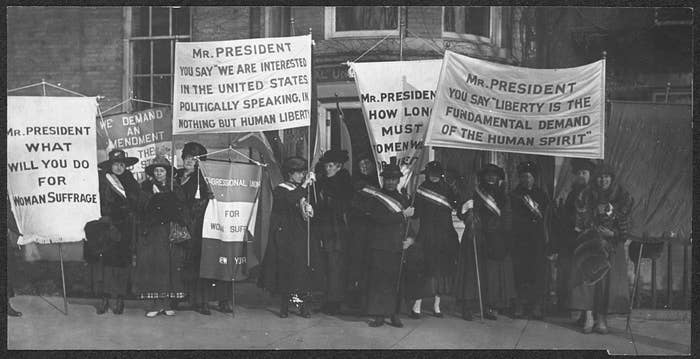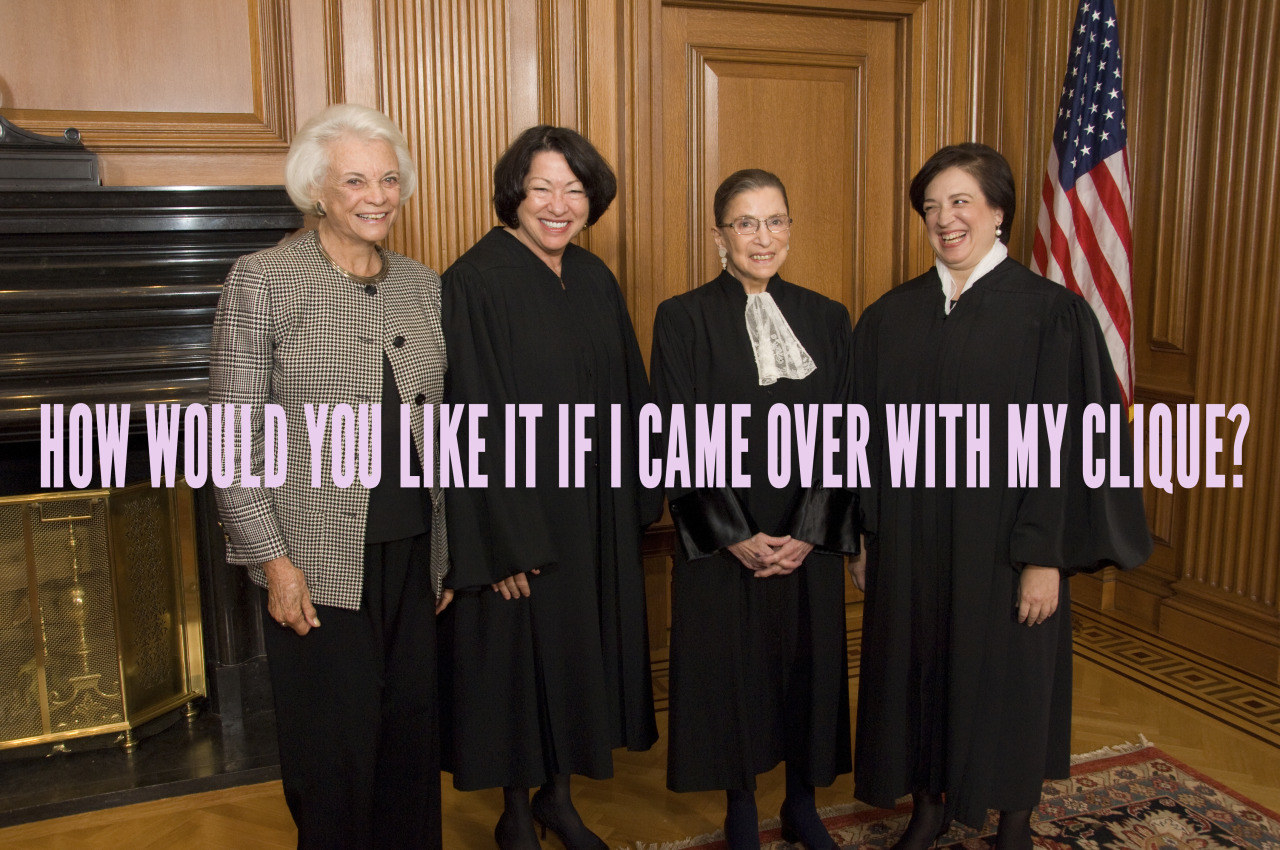1. Historical lack of representation

2. Women are less confident than men when it comes to politics
Even though women are increasingly becoming more interested in politics with more education, women still lack the confidence and edge that men have when it comes to politics. As named in Verba’s, Burns’, and Sclozman’s article “Knowing and Caring about Politics: Gender and Political Engagement,” men have a “masculine advantage” of being more politically informed that women tend to be. Without the knowledge of politics it is difficult to become interested in getting involved or being confident in a woman’s ability to be qualified to run. Women sometimes even need to be encouraged repeatedly before they feel comfortable or ready to run. In a Politico article, Janie Boschma explains that in college women’s confidence for running for office drops and they do not engage in activities that revolve around politics (discussing with friends, visiting political websites) as much as men do and they are not as encouraged by their parents to pursue politics. The number of women who think they will definitely run for office drops as a result. Even adult women who had practical political qualifications viewed themselves as qualified at a lower rate than men did. The lack of information and involvement at a young age causes the lower level of confidence, which results in less women seeing themselves as fit for running for office.
Verba, Sidney, et al. “Knowing and Caring about Politics: Gender and Political Engagement.” The Journal of Politics, vol. 59, no. 4, 1997, pp. 1051–1072. JSTOR, www.jstor.org/stable/2998592.
Boschma, Janie, and Ellen Weinstein. "Why Women Don't Run for Office." POLITICO. N.p., 12 June 2017. Web. 29 July 2017.
3. Women don’t respond to competition in the same way
One argument that tries to explain women’s lack of representation in the political hemisphere is their response to political competition. According to Jessica Preece and Olga Stoddard’s article “Why women don’t run: Experimental evidence on gender differences in political competition aversion,” when testing the scope of competitive aversion as the cause for women’s lack of ambition in politics, they found that when they primed the participants about the competitiveness of the race, there was a significant negative effect on the women’s interest for running, but not on the men’s interest for running. Despite the fact that women in this study were highly successful political participants, who were just as qualified as other male politicians, they wavered in the face of political competition. This could be due to the way that men and women are raised to respond to competition in general, men running towards it and women running away from it. An article by Ella Gonzales suggests that despite these are traits being valued in the political arena, women’s increased cautiousness is actually beneficial in making careful decisions and that the problem is not the lack of interest in running for office, but is the lack of interest of running for office in a male dominated society which can be perceived as unfair grounds. Women’s hesitance in running shows the effect that gender has on the competitive nature, men being encouraged to compete and fight hard to win, and women being encouraged to shy away from highly competitive atmospheres; even being seen in women’s lack of representation in higher political office as compared to local office.
Preece, J., and O. Stoddard. "Why Women Don't Run: Experimental Evidence on Gender Differences in Political Competition Aversion." Journal of Economic Behavior & Organization, vol. 117, 2015, pp. 296-308.
Gonzalez, Ella. "The Lack of Women in Politics." The Huffington Post. TheHuffingtonPost.com, 24 Oct. 2013. Web. 20 July 2017.
4. Women don’t receive as much public political support
Despite the belief that in modern society women are viewed as equal to men and are thought to be given a fair chance, women are held to stereotypical criticisms when in the public eye. The article “Running Backwards and in High Heels” by Fulton suggests that men and women can perform as well as men can in political elections, however, they must work more in order to be better in quality to even be able to compete with them. Women must have to prove themselves and their qualifications and ability to lead are called into question while men’s capabilities are not. The public inherently trusts men due to the history of politicians being male, which leads to men dominating politics. According to an article by the Washington Post, women also do not receive as much fundraising for national office or support by their political parties, making it difficult for them to grab the attention necessary in order to have a successful campaign. Without the real backing of a political party it is difficult to get any of the necessities for running which include funding, volunteers, and media coverage that would lead people to be able to follow a candidate’s platform. This leads to women not being able visible in the political sphere, thus they are not able to get as much support as the male politicians who are seen often and trusted by voters. Politics seems to be viewed as a stereotypically masculine job, the presidency being the epitome, and these obstacles to support that women continuously deal with in order to even be seen by voters to be able to compete effectively shuts them out of the race entirely.
Fulton, Sarah A. "Running Backwards and in High Heels." Sage Journals. N.p., 16 June 2011. Web. 29 July 2017.
McGregor, Jena. "Why More Women Don’t Run for Office." The Washington Post. WP Company, 21 May 2014. Web. 29 July 2017.
5. Children at home suppress women's ambition
Even in modern society, women are still handed the responsibility to care for the children if they have them. As suggested by Fulton’s, Maestas’, Masiel’s, and Stone’s article “The Sense of a Woman: Gender, Ambition, and the Decision to Run for Congress,” men and women without children have no significant difference in their ambition to run for congressional office, however once children are in the picture, women’s ambition dwindles to “nearly half that of men.” This is due largely to women being the one’s that are viewed as having the role and thus the social responsibility to care for their children as opposed to men. Having children not only lessens women’s ambition to run for office, it makes men who have children more ambitious for political office than men who do not. It is the image that having children brings along that helps men, but does not to the same for women. In Marina Fang’s article, she explains that it is not only the sheer work it takes to have a family for women, but the effects of dealing with public life and a family. Women in politics face much more criticism and questioning from the outside world for choosing this demanding career choice and not appearing in society’s eyes as being able to be both a politician and an attentive mother, while also not considering where the father is. Even in today’s society that claims to be open to women taking charge of their own lives, these comments are reminiscent of the attitudes from the past that kept women in the household and out of public life. This encourages women to not run for public office in fear of the criticism they might face for trying to even have a political career.
Sarah A. Fulton, et al. “The Sense of a Woman: Gender, Ambition, and the Decision to Run for Congress.” Political Research Quarterly, vol. 59, no. 2, 2006, pp. 235–248. JSTOR, www.jstor.org/stable/4148091.
Fang, Marina. "Women Are Underrepresented In Politics, But It's Not For The Reason You Think." The Huffington Post. TheHuffingtonPost.com, 22 July 2014. Web. 29 July 2017.
6. Sexism faced while holding office
View this video on YouTube
Women who are confident about their ability and qualifications to run still face a political world that is male dominated and is not publicly as welcoming to women as it seems. Most people nowadays will not outwardly say that they do not support a capable, qualified woman in office, but women are not treated with respect and professionalism while running or while they are in office. Tanya Romaniuk’s article “Talking About Sexism” discusses the way sexist interactions towards Hillary Clinton were perceived during the campaign. Interviewers were doubtful and critical of situations that were claimed to be sexist and often interrupted the interviewees while they talked about their experiences in an attempt to dismantle their claims and paint the interviewee as weak. Despite experiencing sexism throughout her campaign, when Clinton was perceived as successful interviewers thought she “should not ‘complain’ about sexism when she is winning.” This attitude effectively tries to silence a woman who is in the public eye when she is talking about sexism, thus making it seem like a normal thing to do, like she’s asking for it just by getting involved. This contributes to women politicians being seen as weaker when they decide to speak out against sexist remarks instead of putting up with them. Similarly in the video by VICE News, women politicians speak not only of the criticisms made during their race, but of the sexist harassment they’ve experienced in office. Senator Claire McCaskill describes an encounter where she asked the speaker of the house how she should proceed to make progress on her bill and “he looked at me and kind of laughed and said ‘Did you bring your knee pads?’” This kind of wildly inappropriate language surpasses being just a friendly joke seeing as it suggests that the only way a that Senator McCaskill could pass something as a woman would be to use sexual favors. It is this type of commentary about women that is ignored and not seen as troubling that causes people to debate whether situations are sexist or not, when they clearly are.
Romaniuk, Tanya. "Talking About Sexism." Talking About SexismJournal of Language and Social Psychology - Tanya Romaniuk, 2015. N.p., 2 June 2015. Web. 29 July 2017
https://www.youtube.com/watch?v=GICS2uUGvTE
7. The future of politics



